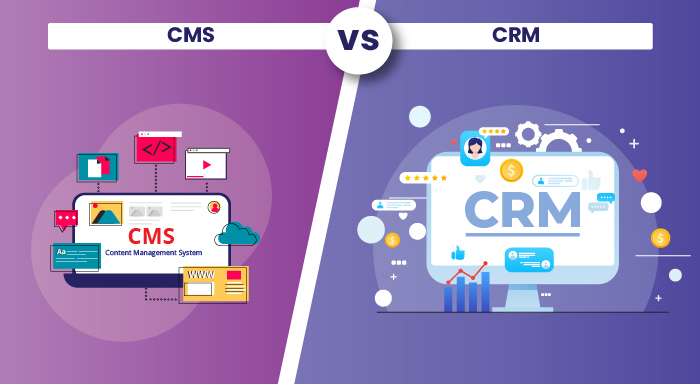Tech
Case Management Software vs. CRM Systems: Understanding the Differences

With the advancement of technology, organizations find solace in digital tools, for almost every aspect of their operations or interaction with the customer. Two specific types of business software are Case Management Systems (CMS) and Customer Relationship Management (CRM) systems. While both aim to increase efficiency and effectiveness in an organization, they perform different roles.
CMS is an application aimed at processing and managing individual cases or projects while maintaining easy collaboration between members and documenting each step in the case. This type of software is crucial in jobs where case-specific information is among the key concerns of each day’s work.
On the other hand, CRM systems are concerned with organizational interactions with the customers and potential customers. Its chief goals are to increase customer loyalty and sales by collecting and storing detailed information about customer communication in different channels. This generalized approach assists companies in managing customer engagement strategies efficiently.
Features of Case Management Software
A Case Management Software is designed for handling end-to-end of a case or any project. The term ‘case’ can mean any work, product, sale or service that is initiated and concluded in a given amount of time. Usually, these matters should involve the input, collaboration, and follow-up from various players to find a solution.
Companies in the sectors of healthcare, law, social services, and government organizations employ CMS to manage cases and keep records and documents up to date. The application guarantees each stage of a case is covered rigorously, which helps optimize the time teams spend on particular cases.
Features of Customer Relationship Management Systems
On the other hand, Customer Relationship Management Systems are tools for managing all a business’s communications with current and potential customers. Today, there are many types of CRM systems implemented in different industries such as retail, financial, hospitality, and many others. The primary function of CRM is all about enhancing business relationships and helping to reduce customer turnover and increase sales.
This type of software targets the collection of data from various communication platforms, web, phone, email, chat, and social media platforms of the company. In doing so, the CRMs give the big picture of every customer, thus allowing the businesses to market and serve appropriately.
Comparison Between CMS and CRM
Where CMS and CRM are most dissimilar is in their fundamental purpose and general capabilities. CMS is case oriented, this implies that it is developed to deal with individual cases or occurrences proficiently. The interface and the functions of the navigation in CMS are designed to organize the case-related issues which need more attention and follow-up.
On the other hand, CRM systems are customer-oriented. They mainly focus on customer contacts, sales control, performance, and many other issues of a healthy customer relationship. Customer relationship management tools are particularly important for marketing departments and salespersons who need to increase the level of conversion.
Conclusion
It is important for any organization in the process of selecting a new software to understand the differences between Case Management Software and Customer Relationship Management Systems. Both systems improve efficiency and service while addressing different objectives. The choice of the appropriate tool contributes to proper control of the organization’s operations and the development of more efficient practices within the workplace.
Kenneth is a proud native of sydney, born and raised there. However, he pursued his education abroad and studied in Australia. Kenneth has worked as a journalist for almost a decade, making valuable contributions to prominent publications such as Yahoo News and The Verge. Currently, he serves as a journalist for The Hear Up, where he focuses on covering climate and science news. You can reach Kenneth at [email protected].










